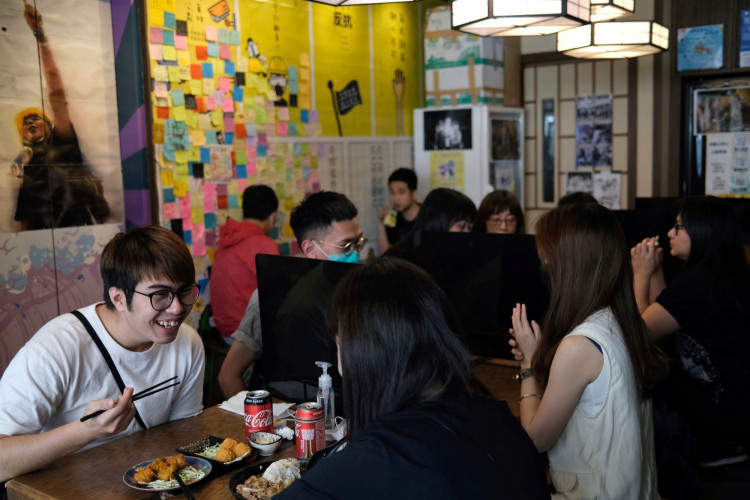All that pent-up cash in China locked-up by the COVID-19 had to go somewhere. Chinese shoppers used Golden Week to splurge on imported items online and flock to favorite in-country tourist destinations such as Hainan Island in the south in a heartening consumer recovery from the coronavirus.
Chinese consumers took full advantage of the Golden Week celebration from Oct. 1 to 8 to spend $69.5 billion (RMB466.6 billion), according to data from the Ministry of Culture and Tourism. The amount was 30% smaller year-on-year but impressive nonetheless amid the loss of personal incomes caused by the pandemic.
Analysts said the figure shows consumption beginning to bounce back following the beating it took in the first half of the year due to the coronavirus-induced economic slowdown.
Chinese consumers boosted sales on Tmall Global, Alibaba's primary e-commerce platform for overseas brands, by 79% from Oct. 1 to 7 year-on-year, according to the company. No amount was revealed, however.
Unable to travel abroad due to strict travel restrictions in most of the world, Chinese tourists spent at home, instead. Duty-free sales on Hainan more than doubled from 2019. It jumped 148.7% to $155 million (RMB1.04 billion) year-on-year.
Hainan did its part in attracting domestic tourists by increasing duty-free shopping limits on July 1. Chinese tourists usually travel to Hong Kong, Japan and South Korea for duty-free shopping.
Golden Week tourism and spending suggest a recovery in domestic consumption partly due to what's being called "revenge buying" that's making-up for the previous months when people were unable to travel, said Jennifer Ye, a partner in the Risk Assurance Services in PwC China.
"Chinese consumer confidence has been significantly recovered due to the proper control of pandemic, government pro-consumption policies and stimulus and faster than expected resumption of business activities," said Ye.
Some 637 million Chinese traveled inside China during Golden Week holiday. More than 45% of China's 1.4 billion people traveled during the holiday, which also had the potential to reignite the COVID-19 pandemic in the country.
China's Ministry of Commerce said average daily sales for retail and food and beverages was 4.9% higher than last year's Golden Week holidays. Total sales for this year's entire Golden Week came to $237 billion (RMB1.6 trillion).
The Golden Week numbers are a "positive sign" for China and other countries that economies can revive pretty quickly once COVID-19 is under control, noted Shivaji Das, managing director of research and consulting firm Frost & Sullivan in Asia Pacific.
Das, however, pointed out fewer people traveled. Those that did spent less out of caution over the pandemic. Government data shows 21% fewer China traveled during this year's Golden Week compared to the 2019 event.
"Many people have lost income or were without jobs during the worst times of the pandemic so people are trying to be more careful from a financial perspective," he said.






